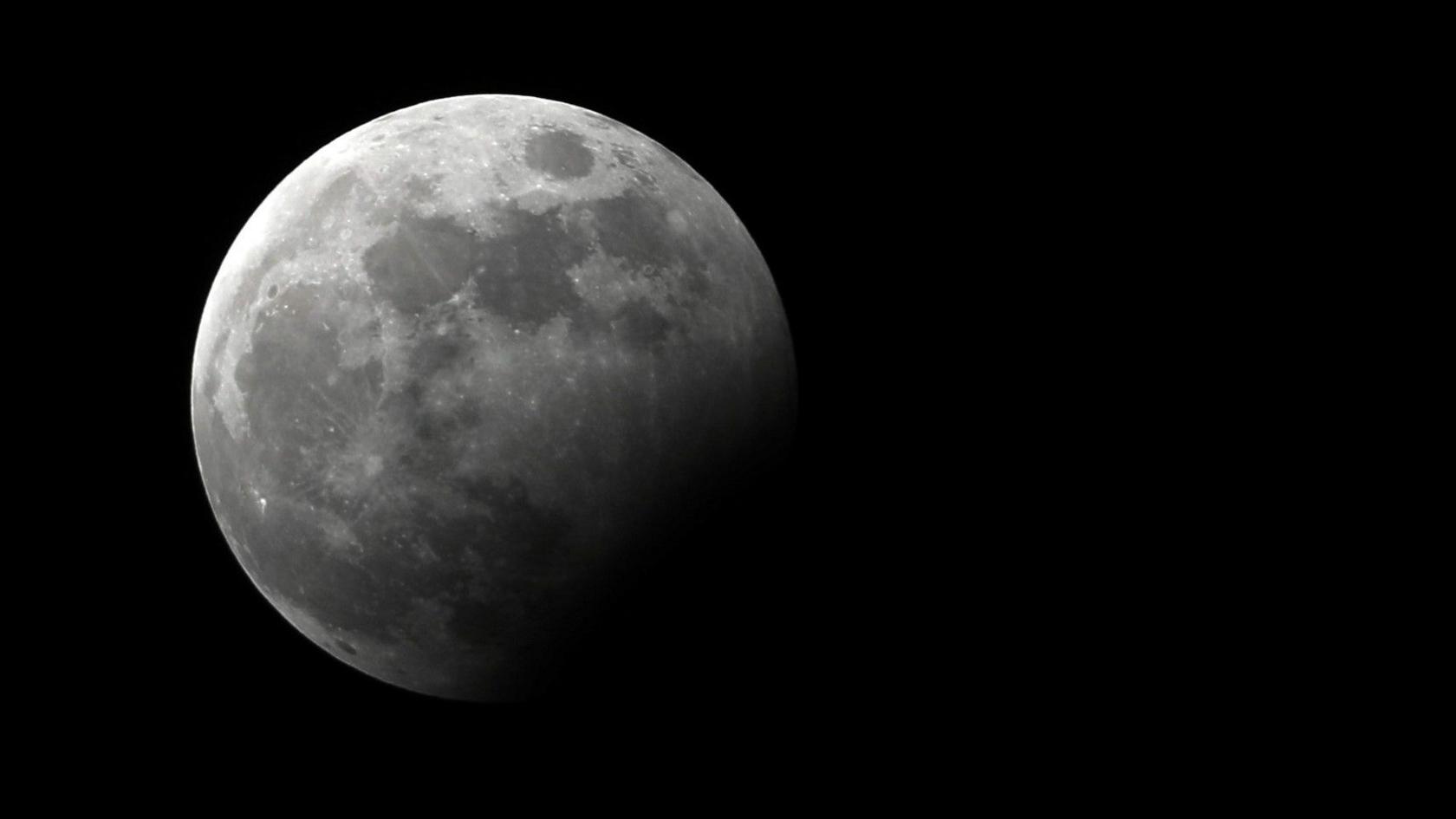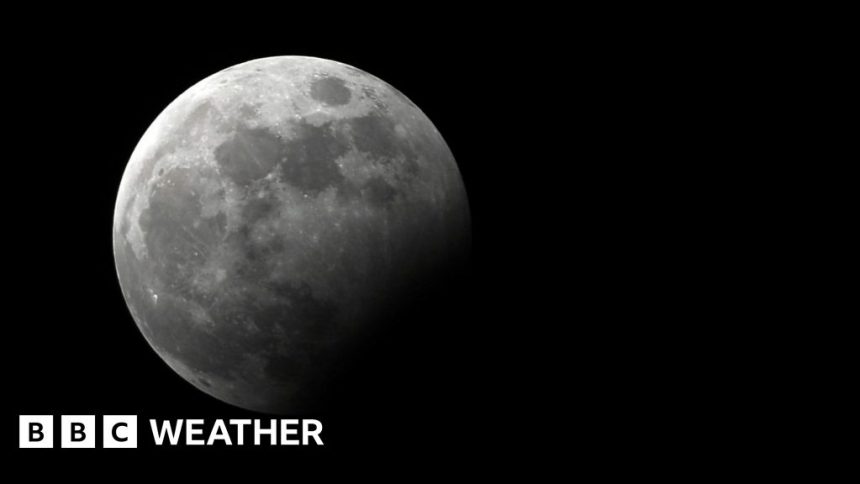Rare supermoon partial eclipse to grace UK night sky

-
Published
There will be a partial eclipse of the supermoon visible across the United Kingdom on Tuesday night.
This month’s full moon – known as the Harvest moon – also happens to be the second of four “supermoons” this year.
Full supermoons occur when the orbit of the moon is at perigee – the closest point to Earth in its orbit, which makes the Moon appear bigger and brighter in the night sky.
Most areas should get a good view tonight, although cloud is expected to develop for some across England and eastern Wales as the night goes on.
The forecast suggests most of the UK should get a chance of seeing the partial eclipse
What time is the lunar eclipse?
The full harvest supermoon will rise on Tuesday evening at around 7.15pm BST.
At approximately 1:40am on Wednesday morning, a small shadow created by Earth will appear in the top right corner of the moon as the eclipse starts.
There are two types of shadow caused by Earth. The lighter one, called the penumbra, will not have too much effect but the umbra, the inner and darker shadow, will darken the Moon.
The partial eclipse will reach its maximum at 3.44am.
But do not expect there to be a big shadow visible on the supermoon as only around 4% of the Moon’s disc will be covered in darkness by the umbra shadow.
Where there are clear skies, even though it is a small partial eclipse, you will still be able to see it without the need for a telescope or binoculars.
Why is this lunar eclipse so special?
Full moons happen every month but supermoons are less common – even though this will be the second of four this month.
You may remember the blue supermoon only last month.
Partial lunar eclipses also do not happen very often. The next one is in August 2026, which will be special as around 96% of the Moon will be in shadow.
Therefore, to have a partial eclipse of a full moon, which happens to be a supermoon, is rare.
What does ‘harvest moon’ mean?
Full moons are given a name every month linked to aspects of life in the month which they occur.
The harvest moon is the name given to the full moon that occurs nearest to the autumn equinox, which this year occurs on 22 September.
A supermoon occurs when the Moon is at its closest point to the Earth. This is known as the lunar perigee.
A full moon during perigee will appear 14% larger and 30% brighter than when it is furthest away from Earth.
October’s hunter moon and November’s beaver moon will also be supermoons this year.
If you capture any great images of the eclipse, you can upload them to BBC Weather Watchers here.
-
-
Published20 September 2021
-
-
-
Published6 September
-





